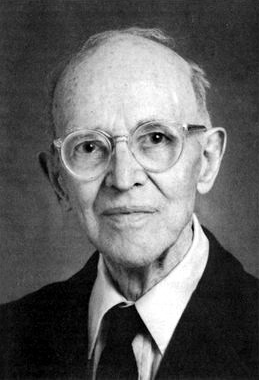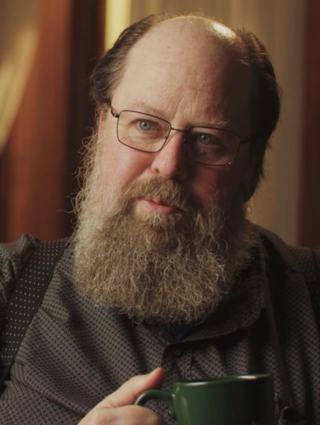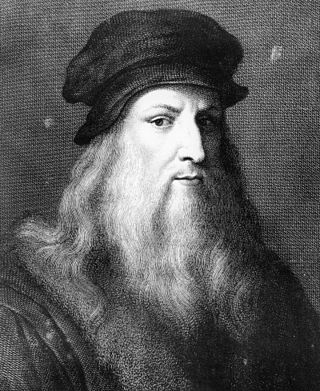Philosophy of religion is "the philosophical examination of the central themes and concepts involved in religious traditions". Philosophical discussions on such topics date from ancient times, and appear in the earliest known texts concerning philosophy. The field involves many other branches of philosophy, including metaphysics, epistemology, logic, ethics, aesthetics, philosophy of language, and philosophy of science.

Panentheism is the belief that the divine intersects every part of the universe and also extends beyond space and time. The term was coined by the German philosopher Karl Krause in 1828 to distinguish the ideas of Georg Wilhelm Friedrich Hegel (1770–1831) and Friedrich Wilhelm Joseph Schelling (1775–1854) about the relation of God and the universe from the supposed pantheism of Baruch Spinoza. Unlike pantheism, which holds that the divine and the universe are identical, panentheism maintains an ontological distinction between the divine and the non-divine and the significance of both.

Theism is broadly defined as the belief in the existence of at least one deity. In common parlance, or when contrasted with deism, the term often describes the philosophical conception of God that is found in classical theism—or the conception found in monotheism—or gods found in polytheistic religions—or a belief in God or gods without the rejection of revelation, as is characteristic of deism.
An argument from nonbelief is a philosophical argument for the non-existence of God that asserts an inconsistency between God's existence and a world in which people fail to recognize him. It is similar to the classic argument from evil in affirming an inconsistency between the world that exists and the world that would exist if God had certain desires combined with the power to see them through.

Charles Hartshorne was an American philosopher who concentrated primarily on the philosophy of religion and metaphysics, but also contributed to ornithology. He developed the neoclassical idea of God and produced a modal proof of the existence of God that was a development of Anselm of Canterbury's ontological argument. Hartshorne is also noted for developing Alfred North Whitehead's process philosophy into process theology.
The existence of God is a subject of debate in the philosophy of religion. A wide variety of arguments for and against the existence of God can be categorized as logical, empirical, metaphysical, subjective or scientific. In philosophical terms, the question of the existence of God involves the disciplines of epistemology and ontology and the theory of value.
Michael Lou Martin was an American philosopher and former professor at Boston University. Martin specialized in the philosophy of religion, although he also worked on the philosophies of science, law, and social science. He served with the US Marine Corps in Korea.
Antitheism, also spelled anti-theism, is the philosophical position that theism should be opposed. The term has had a range of applications. In secular contexts, it typically refers to direct opposition to the belief in any deity.

David Bentley Hart is an American writer, fiction author, philosopher, religious studies scholar, critic, and theologian. Reviewers have commented on Hart's baroque prose and provocative rhetoric in over one thousand essays, reviews, and papers as well as twenty-four books. From a predominantly Anglican family background, Hart became Eastern Orthodox when he was twenty-one. His academic works focus on Christian metaphysics, philosophy of mind, Indian and East Asian religion, Asian languages, classics, and literature as well as a New Testament translation. Books with wider audiences include The Doors of the Sea, Atheist Delusions, That All Shall Be Saved, and Roland in Moonlight.
The Atheism Tapes is a 2004 BBC television documentary series presented by Jonathan Miller. The material that makes up the series was originally filmed in 2003 for another, more general series, Atheism: A Rough History of Disbelief, but was too lengthy for inclusion. Instead, the BBC agreed to create The Atheism Tapes as a supplementary series of six programmes, each consisting of an extended interview with one contributor.
Criticism of atheism is criticism of the concepts, validity, or impact of atheism, including associated political and social implications. Criticisms include positions based on the history of science, philosophical and logical criticisms, findings in both the natural and social sciences, theistic apologetic arguments, arguments pertaining to ethics and morality, the effects of atheism on the individual, or the assumptions that underpin atheism.

Classical theism is the form of theism in which God is characterized as the singular Absolute Being, Absolute Self, and Ultimate Person who is the source and origin of all the other beings.

In monotheistic belief systems, God is usually viewed as the supreme being, creator, and principal object of faith. In polytheistic belief systems, a god is "a spirit or being believed to have created, or for controlling some part of the universe or life, for which such a deity is often worshipped". Belief in the existence of at least one god is called theism.

Implicit atheism and explicit atheism are types of atheism. In George H. Smith's Atheism: The Case Against God, "implicit atheism" is defined as "the absence of theistic belief without a conscious rejection of it", while "explicit atheism" is "the absence of theistic belief due to a conscious rejection of it". Explicit atheists have considered the idea of deities and have rejected belief that any exist. Implicit atheists, though they do not themselves maintain a belief in a god or gods, have not rejected the notion or have not considered it further.
The argument from consciousness is an argument for the existence of God that claims characteristics of human consciousness cannot be explained by the physical mechanisms of the human body and brain, therefore asserting that there must be non-physical aspects to human consciousness. This is held as indirect evidence of God, given that notions about souls and the afterlife in Judaism, Christianity, and Islam would be consistent with such a claim.
The following outline is provided as an overview of and topical guide to atheism:

Philosophical theism is the belief that the Supreme Being exists independent of the teaching or revelation of any particular religion. It represents belief in God entirely without doctrine, except for that which can be discerned by reason and the contemplation of natural laws. Some philosophical theists are persuaded of God's existence by philosophical arguments, while others consider themselves to have a religious faith that need not be, or could not be, supported by rational argument.
Articles related to philosophy of religion include:
Theistic finitism, also known as finitistic theism or finite godism, is the belief in a deity that is limited. It has been proposed by some philosophers and theologians to solve the problem of evil. Most finitists accept the absolute goodness of God but reject omnipotence.
This is a list of books, selected essays, and selected recordings by David Bentley Hart in reverse chronological order.







